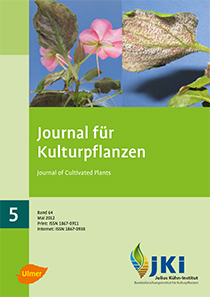Retracted Article: Agro-Economic Analysis of the use of Glyphosate in Germany
DOI:
https://doi.org/10.5073/JfK.2012.05.02Keywords:
Glyphosate, Resistance, Herbicide, WelfareAbstract
A Retraction Note to this article was published on December 18, 2019, https://doi.org/10.5073/JfK.2012.05.02.retraction
Intensive agricultural cultivation is often perceived very negatively in society. The benefit generated through plant protection for ensuring the availability of high quality food for the growing world population is taken for granted and thus is not appreciated accordingly. In this article, by the example of the active substance Glyphosate, it is shown which economic importance certain plant protection substances can have in German agriculture. For this, in spring 2011 14 expert interviews with consultants from different regions of Germany were conducted. The results reveal that in many regions Glyphosate foremost is a standard measure for the conservation tillage. Overall it is applied on 30% to 35% of the winter grain area and 50% of the winter rape area. In the hypothetical case of a glyphosate ban in some areas despite additional tillage and plant protection measures yield depressions of up to 10% would be possible. Based on these findings the profit margins for individual crops in case of a Glyphosate ban have been calculated. The profit margins would decrease by up to 27% in Eastern Germany, 3% in Northern Germany and 36% in the Northern Coastal Areas. For this, the increase in the producer prices due to a decrease in production in the EU-27 by 5% and higher production costs has been accounted for. The producer prices have been estimated using the partial equilibrium model AGRISIM. With the model it can also be shown that cost increases and yield depressions in the EU-27 would lead to decreases in production in the case of wheat, fodder, maize and oilseeds to the tune of 4,3% to 7,1%. The European Union from being a net exporter of wheat and fodder would become a net importer and import deficits for oilseeds and maize would increase further. This would lead to an annual welfare loss of 1,4 billion US-$ in the European Union.
Downloads
Additional Files
Published
Issue
Section
License
The content of the journal is licensed under the Creative Commons Attribution 4.0 License. Any user is free to share and adapt (remix, transform, build upon) the content as long as the original publication is attributed (authors, title, year, journal, issue, pages).
The copyright of the published work remains with the authors. The authors grant the Journal of Cultivated Plants, the Julius Kühn-Institut and the OpenAgrar repository the non-exclusive right to distribute and exploit the work.







